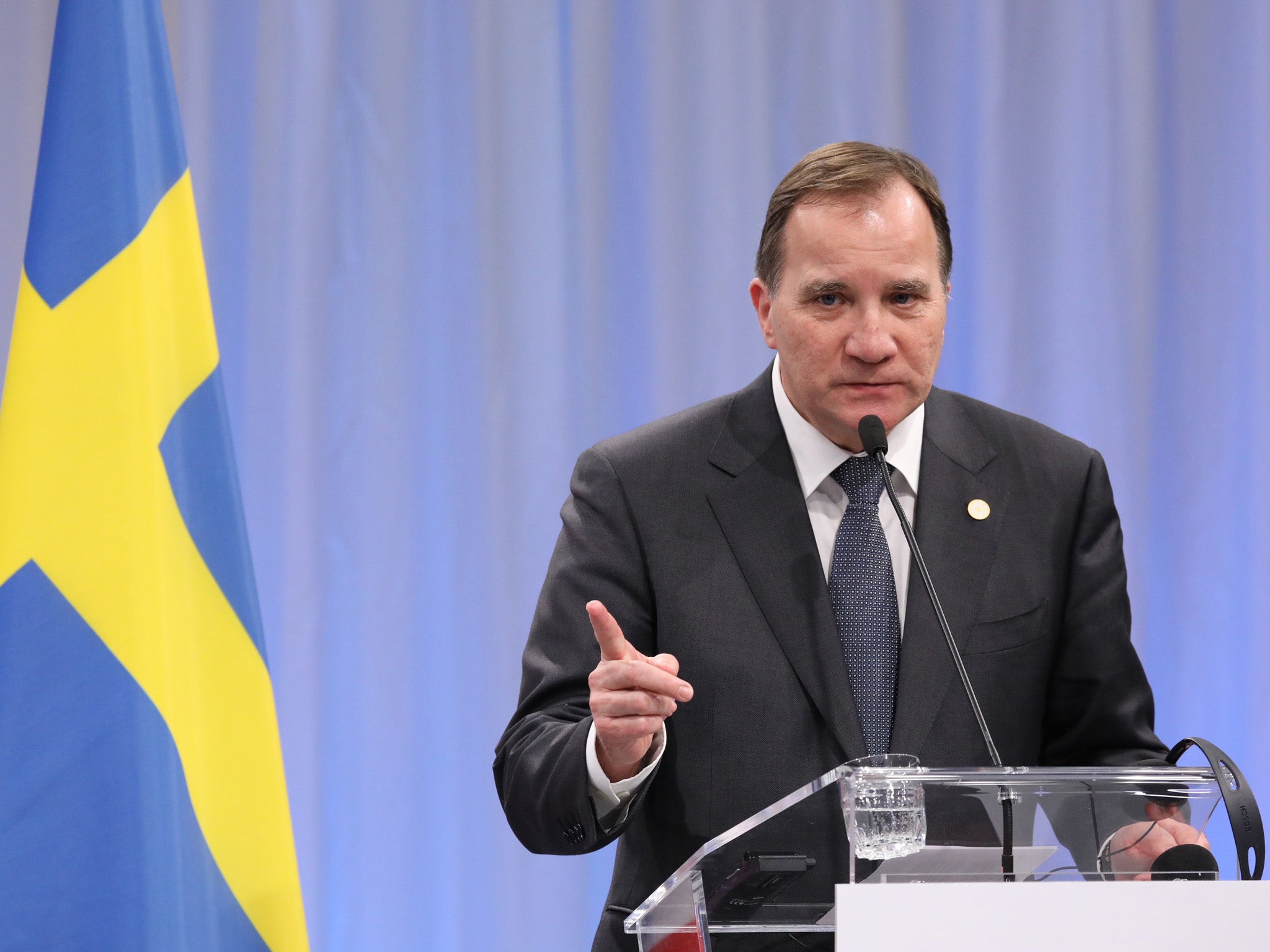Swedish prime minister Stefan Lofven ousted after losing no-confidence vote
The former welder still wants to form a new coalition

Sweden’s prime minister Stefan Lofven has lost a no-confidence vote in parliament, meaning he will have to step down from his post.
The leader of the Swedish Social Democrats will stay as a caretaker prime minister during coalition talks to decide the country’s next government following close elections earlier this month.
MPs in the Riksdag, the Swedish unicameral parliament, voted 204-142 against Mr Lofven, with three abstentions. He has been prime minister since 2014.
The centre-left bloc in the parliament has 144 seats and the centre-right bloc has 143, while the far-right Sweden Democrats has 62.
Neither of the main blocs has a majority, and neither are expected to do a deal with the Sweden Democrats, meaning forming a majority could prove difficult.
The Social Democrats fared better than expected and won 28.3 per cent of the vote, while the centre-right Moderate Party received 19.8 per cent and the Sweden Democrats 17.5 per cent.
Under the Swedish system, both of the main parties are joined by smaller parties from their respective end of the political spectrum, into wider “blocs” which are made clear ahead of the election.
To the Alliance, it is obvious that Sweden needs a new government.
The left bloc consists of the Social Democrats, the Greens, and the Left party, while the centre-right bloc is the Moderates, the Centre party, the Christian Democrats, and the Liberals.
Coalition talks will now begin in earnest, with Andreas Norlen, the newly-elected Moderate Riksdag speaker, charged with trying to find someone who can command a majority.
Mr Lofven said he was “available for talks” to form a new coalition but stopped short of saying who he might go into government with.
He added: “It is my wish to continue serving our country as prime minister. I want to lead a government that enjoys broad support in Sweden's parliament, so that we can leave bloc politics behind and take the country forward.”
Moderates leader Ulf Kristersson said: “To the Alliance, it is obvious that Sweden needs a new government.”
The negotiations are expected to be complicated. The Liberals and Centre party have said they will quit the centre-right bloc if the Moderates do any deal with the far-right in exchange for support.
The centre-right bloc and the centre-left bloc could potentially reach some kind of deal to give each other support on issues where there is a consensus.
However, there are fears that anything seen as a stitch-up by the main parties could fuel support for the right-wing populists in future elections – as appeared to happen in Germany with the AfD.
Mr Lofven, a former trade union official, worked as a welder before entering politics. He also served in the Swedish air force.
Join our commenting forum
Join thought-provoking conversations, follow other Independent readers and see their replies
Comments
Bookmark popover
Removed from bookmarks